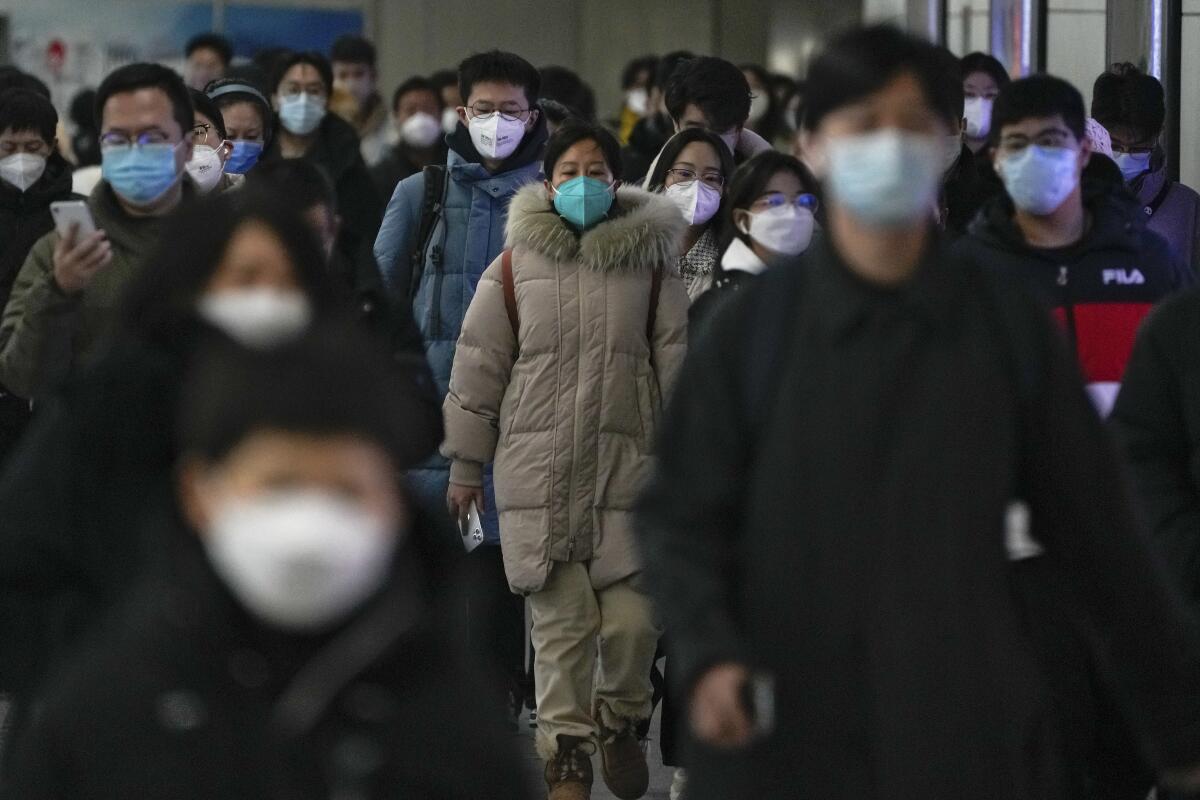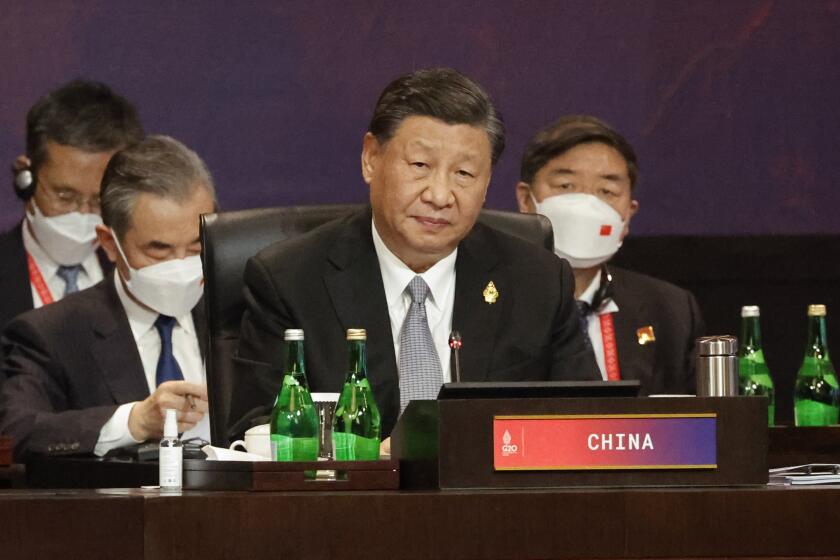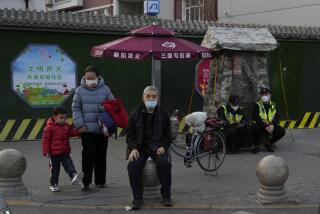China’s COVID-19 outbreak has U.S. worried about new variants

- Share via
The U.S. is concerned China’s runaway COVID-19 outbreak might spawn new mutations of the virus, as the world’s most populous country continues to grapple with the impact of loosening “zero COVID” protocols that had kept the pandemic at bay.
“When it comes to the current outbreak in China, we want to see this addressed,” State Department spokesman Ned Price said in a briefing on Monday. “We know that anytime the virus is spreading in the wild that it has the potential to mutate and to pose a threat to people everywhere.”
Chinese cities are witnessing a wave of COVID-19 cases, with concerns growing that the government may be hiding the true toll of the virus after years of insisting that the Communist Party had handled the virus more skillfully than the West. On Monday, police and security guards pushed journalists back from a Beijing crematorium.
In a statement to Bloomberg News on Monday evening, China’s U.S. Embassy spokesman Liu Pengyu said China has adopted “scientific and precise prevention and control measures” in order to minimize the impact of the virus on China’s population and economy.
Liu added that China “continues to strengthen the genome monitoring of globally circulating, imported and locally circulating Omicron variants,” as well as the “timely assessment of emerging variants to provide a scientific basis for the continuous optimization of prevention and control policies.”
China’s stringent COVID measures have led to an extremely low number of cases. But protests over the policy are putting President Xi Jinping on the defensive.
COVID-19 U-turn
The outbreak has grown following the government’s decision to lift a raft of strict restrictions, including quarantine and isolation protocols, that had largely insulated China’s 1.4 billion people from the worst impact of the COVID-19 pandemic.
China’s U-turn on COVID-19 followed protests in late November in numerous Chinese cities after the containment measures were blamed for deaths in a fire in the country’s western Xinjiang region.
Health agencies, including the U.S. Centers for Disease Control and Prevention, have been on the lookout for new variants such as Delta or Omicron as COVID-19 waves hit different countries around the world. New variations “allow the virus to spread more easily or make it resistant to treatments or vaccines,” according to the CDC.
The U.S. — which is sending a delegation led by Secretary of State Antony J. Blinken to Beijing early in the new year — hopes China can get its current COVID-19 outbreak under control in part because any further blow to the Asian nation could further harm the global economy, Price said.
“The toll of the virus is of concern to the rest of the world, given the size of China’s GDP,” he said. “It’s not only good for China to be in a stronger position vis-a-vis COVID, but it’s good for the rest of the world as well.”
More to Read
Sign up for Essential California
The most important California stories and recommendations in your inbox every morning.
You may occasionally receive promotional content from the Los Angeles Times.











